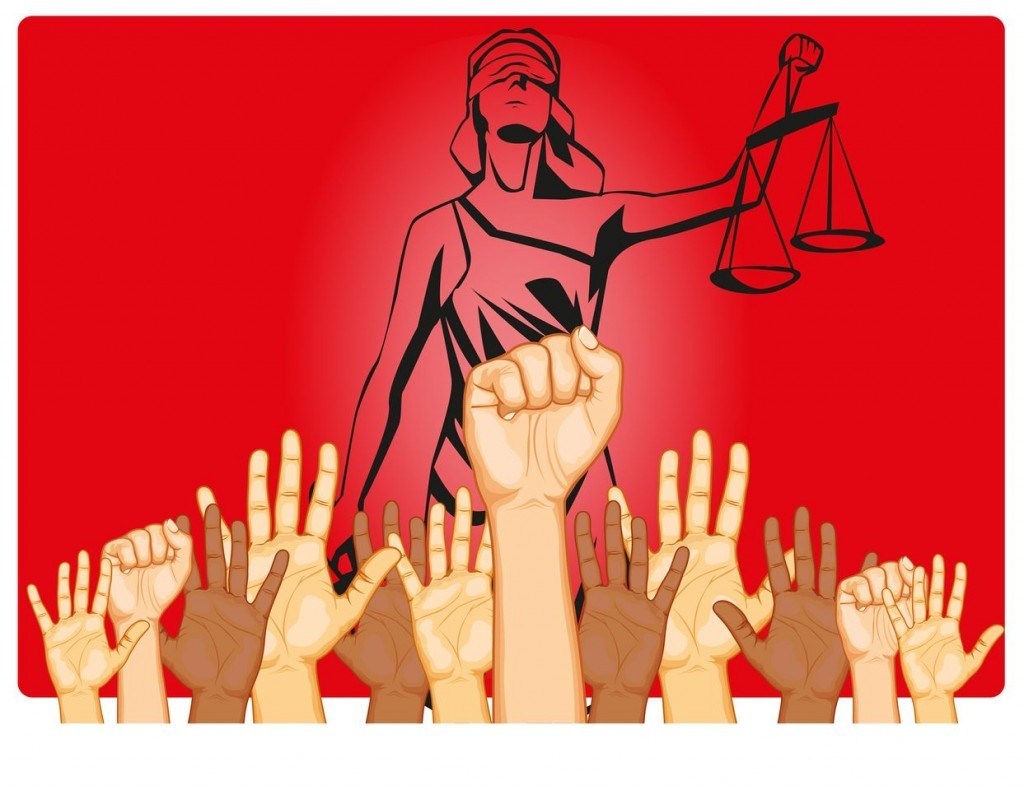
The concept of democracy
Preparation and translation by moatinoon
Democracy is a Greek word of origin, meaning the government of the people or the power of the people. It is the people who choose the government and the form of governance and the dominant systems of political State, the economic and social power of the State.
The concept of democracy is essentially based on a fundamental principle, the sovereignty of the nation, in the sense that the people and the nation as a whole constitute a moral entity independent of individuals, exercising powers themselves or through their ideals, determining who holds power and who has the right or no responsibility to exercise it; Because he represents the sovereign and is considered to be the basis of the democratic principle, and he represents the supreme authority of the State and does not see it as being punished and has two manifestations:
Exterior:
Addresses state sovereignty in regulating its relationship with other states without any direction or influence from one.
Interior appearance:
The States regulation of its internal affairs includes through orders and decisions binding on individuals in the State, sovereignty in this form is an overriding authority. Democratic Advantages:
Characterized by the fact that it is one, do not accept fragmentation or disposition thereof, do not exist in the State unless there is a single supreme authority. It has one administration, and it may not be disposed of in part or in whole. In the sense that a sovereign nation does not have to act, She can give it up in whole or in part, and she always has the right to be sovereign. enables it to make any modification or change the shape of the political, social and economic system within the State, where such sovereignty does not fall or acquire obsolescence; That is, the nations non-use of the principle of sovereignty does not lead to its fall, and if it is usurped, it is not legitimate over time.
Direct Democracy:
It is a form of democratization, in which decisions are voted directly to the opposite of representative democracy, it works to issue executive orders, legislate the two laws, elect and dismiss officials, conduct trials that are subject to direct democratization, and make it possible to do so.
Referendum:
Referendums enable citizens to reject any unwanted law or legislation, and initiatives allow for the proposition of bills and laws submitted by public audiences. Recall:
The summonses provide the possibility of dismissing any public official before the expiration of his or her mandate, where the officials are deemed to be executive agents or direct commissioners committed to the peoples will. Initiative:
Initiatives allow for the proposal of bills and laws introduced by public audiences.
Parliamentarian democracy: Its called indirect democracy, where its one of the most popular forms of democracy in the world. By secret universal suffrage, the deputies are elected by the people. for the exercise of judgement on its behalf during a certain period, in accordance with the provisions of the Constitution and of the parliamentary system in which deputies are elected directly by the people to carry out the function of legislation and oversight In turn, he would choose someone who would head the executive branch, named Prime Minister, and the executive branch would be responsible to Parliament. What distinguishes this kind is that the Head of State is honorary, He does not have much power and the effective authority is in the hands of the Prime Minister. And it is he who chooses the ministers who remain in office as long as they receive support from the majority of members of Parliament, In some cases the government is not confident, in this case it must resign and another person is assigned to carry out the Prime Ministers duties. The formation of the Cabinet, where the executive branch of the party that received the highest votes or through a coalition of parties is formed, is an example of what is happening in Britain.
Presidential Democracy:
Near-direct democracy, where the relationship remains between the masses of the electorate and the person they elected, Where voters can remove the MP and hold another election on their behalf This kind applies in Switzerland, in some states of America, and there is another means in indirect democracy of electing, It is considered the greatest means of electing individuals, one of the means of assuming power and control over it through the four means:
1. Genetics 2. Self-selection 3. Coup d état 4. election,
The election is considered to be one of the most important means of assuming power at the present time, as the election is organic to democracy, the election appeared when democracy emerged, because the people choose someone to exercise power on the side of society.
Popular democracy: This concept is called the regime of governance in States subject to communist influence As the former Soviet Union and former Socialist Camp Doole, Western democracies consider this system to be undemocratic, because its methods do not conform to the basic criteria decided by democracies, The expression of the will of the people takes place on the basis of a complex system imposed within the highest leadership of one party or Government. freedom of choice , which restricts a citizens freedom to endorse or reject a party without another.

